Few people know, but once upon a time the African elephant belonged to Nicholas II. The elephant lived in a menagerie in Tsarskoe Selo. On the eve of 1917, it was decided to transport him to Moscow to settle him in a zoo. It was autumn, and on the way the elephant caught a cold and... died. The valuable skin was divided into three parts and salted in barrels. For a long time it was stored like that, waiting in the wings. 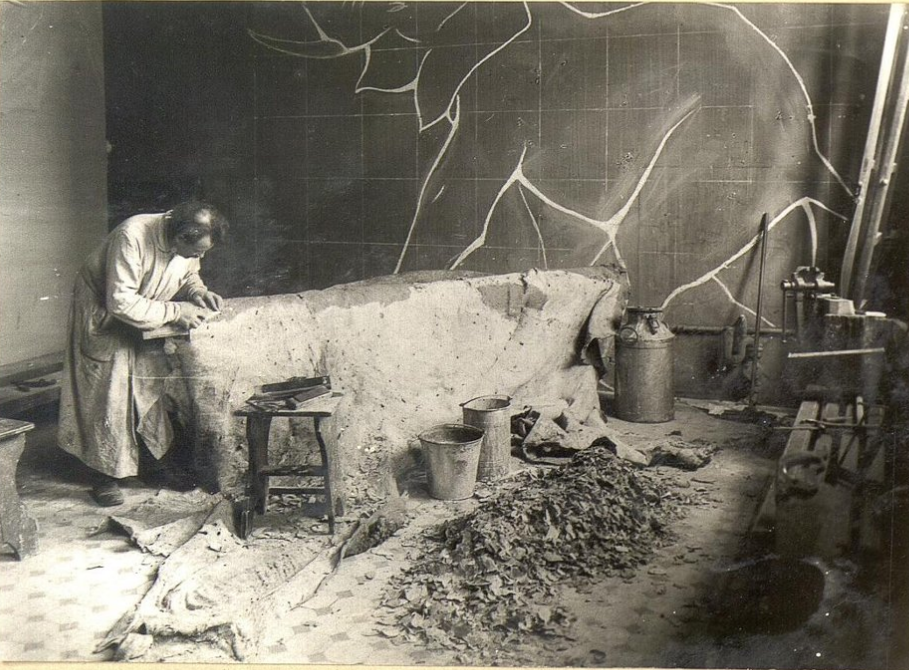
F. E. Fedulov processes the skin of an African elephant. May 1927
Only in 1927 was the skin transferred to the Darwin Museum. And the workers were tormented by doubts for a long time... Fresh elephant skin weighs more than a ton, and the thickness reaches an impressive 5 centimeters. It's been 10 years since this skin was removed! It weighed less, but became harder than a board. How to work with such material? However, the museum boldly decided to begin tanning the skin. 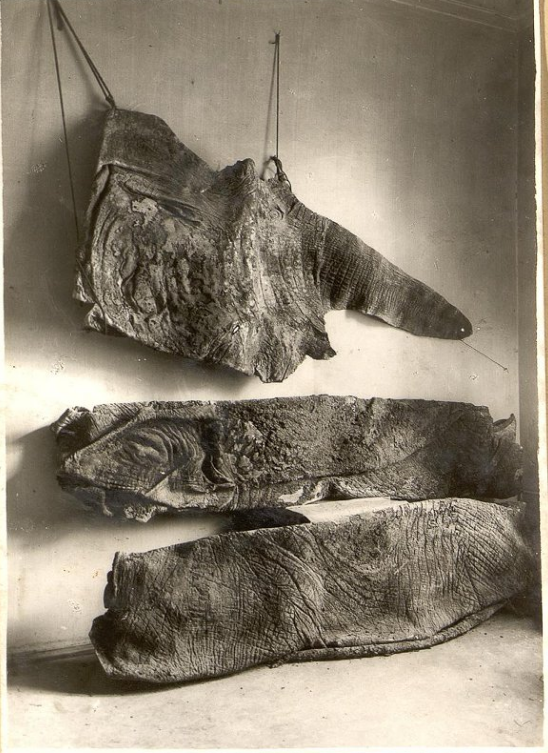
Three pieces of African elephant hide before being tanned in a tannery. 1927
To make the work easier, the skin was first sent to a tannery for tanning. As many as ten master raw materials workers soaked and cut the thickness, bringing it to 3 centimeters. Then Fedulov continued working on his own and... also unusual. The knife was not suitable for such work, so the master took a blade from a peasant’s scythe. Month after month, he cut the skin, bringing the thickness to 1 centimeter. 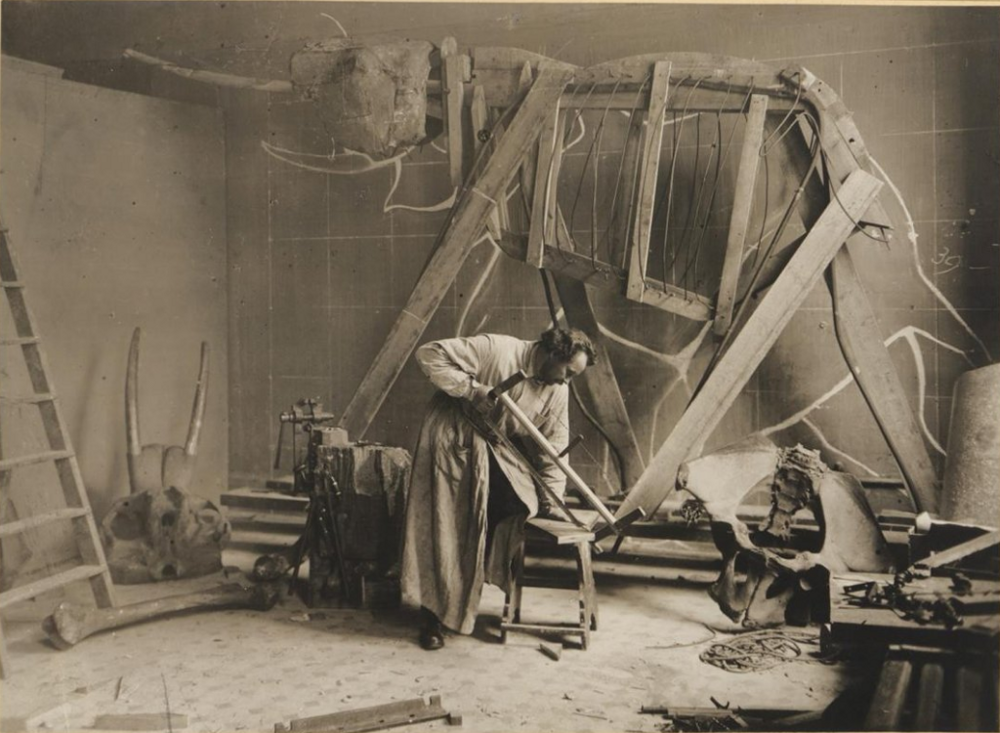
Taxidermist F. E. Fedulov making a wooden frame for a stuffed African elephant. 1927
Then we started creating the frame. Here we had to use our imagination! First, the famous artist V. A. Vatagin painted a life-size silhouette of a trumpeting elephant in the hall. 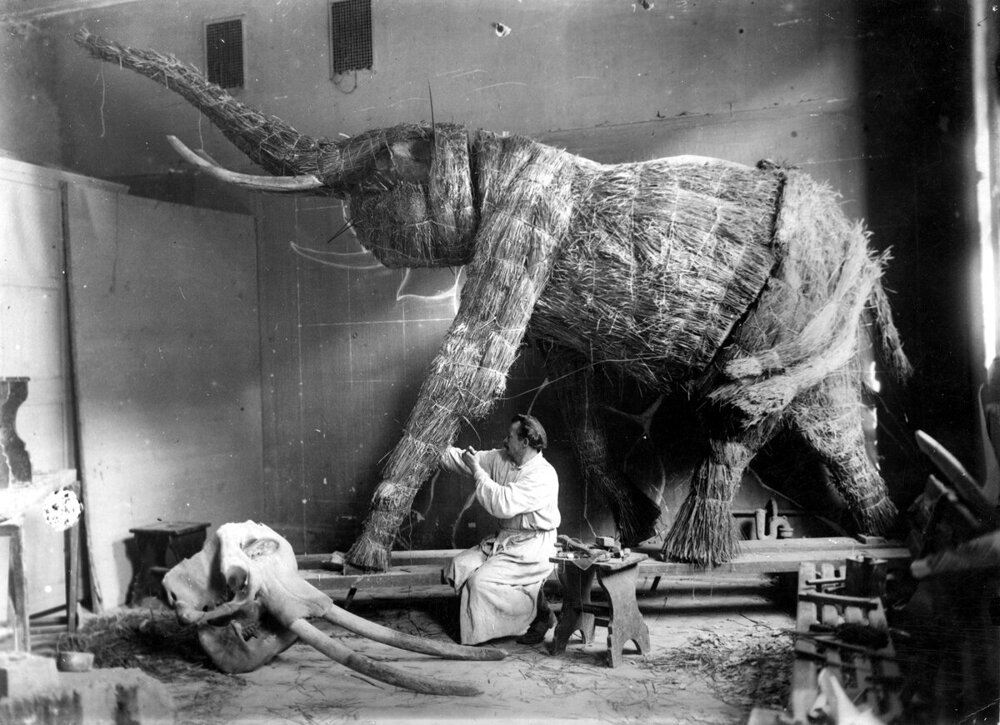
F.E. Fedulov at work on a stuffed African elephant. 1927
Fedulov used iron rods and pipes and made ribs from thick wire. It was decided to make the muscles from straw, and it took two whole cartloads to make the elephant. 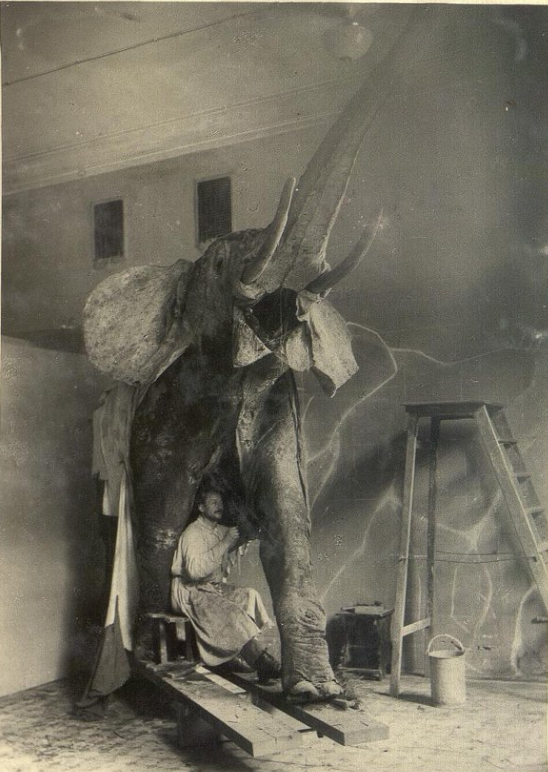
Taxidermist F. E. Fedulov sews the skin on a dummy of a stuffed African elephant. August 1927
All that remains is to simulate the skin on a new body. It was kept damp using towels. After 5 months of hard work, the elephant was finally ready. You can compare the work and the result! 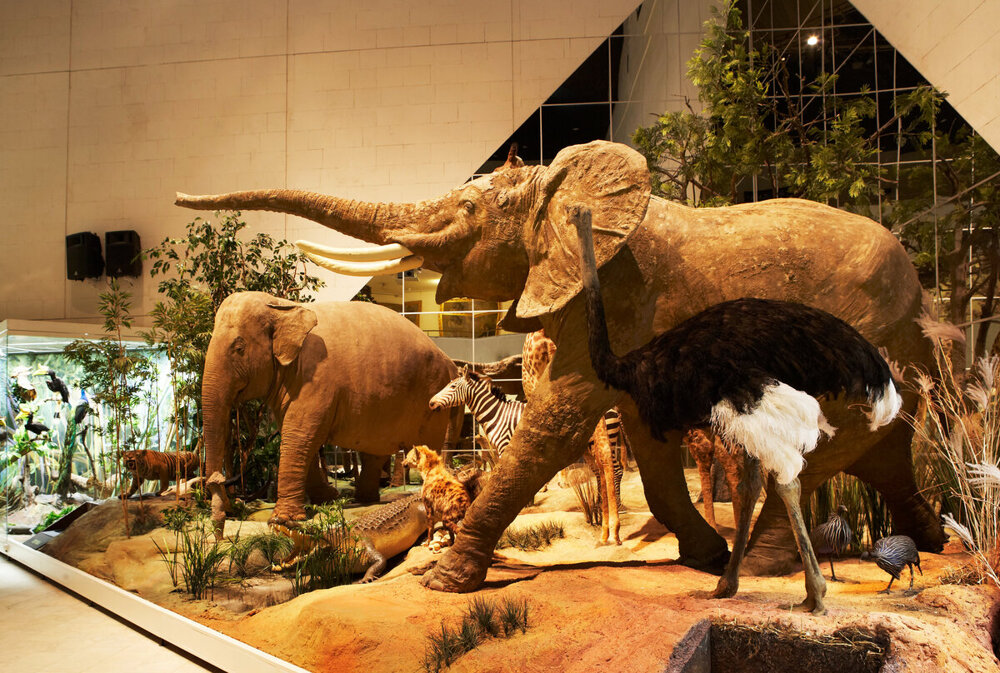
Hall “Diversity of Life on Earth”, exhibition complex “Savannah”. Darwin Museum.
It is worth noting that in those years in Europe, orders for such large stuffed animals were accepted only by one company, “Jungle” by Roland Ward (London). It was she who supplied stuffed elephants to European museums, and such work cost about 500 pounds sterling.
Add your comment
You might be interested in:






















